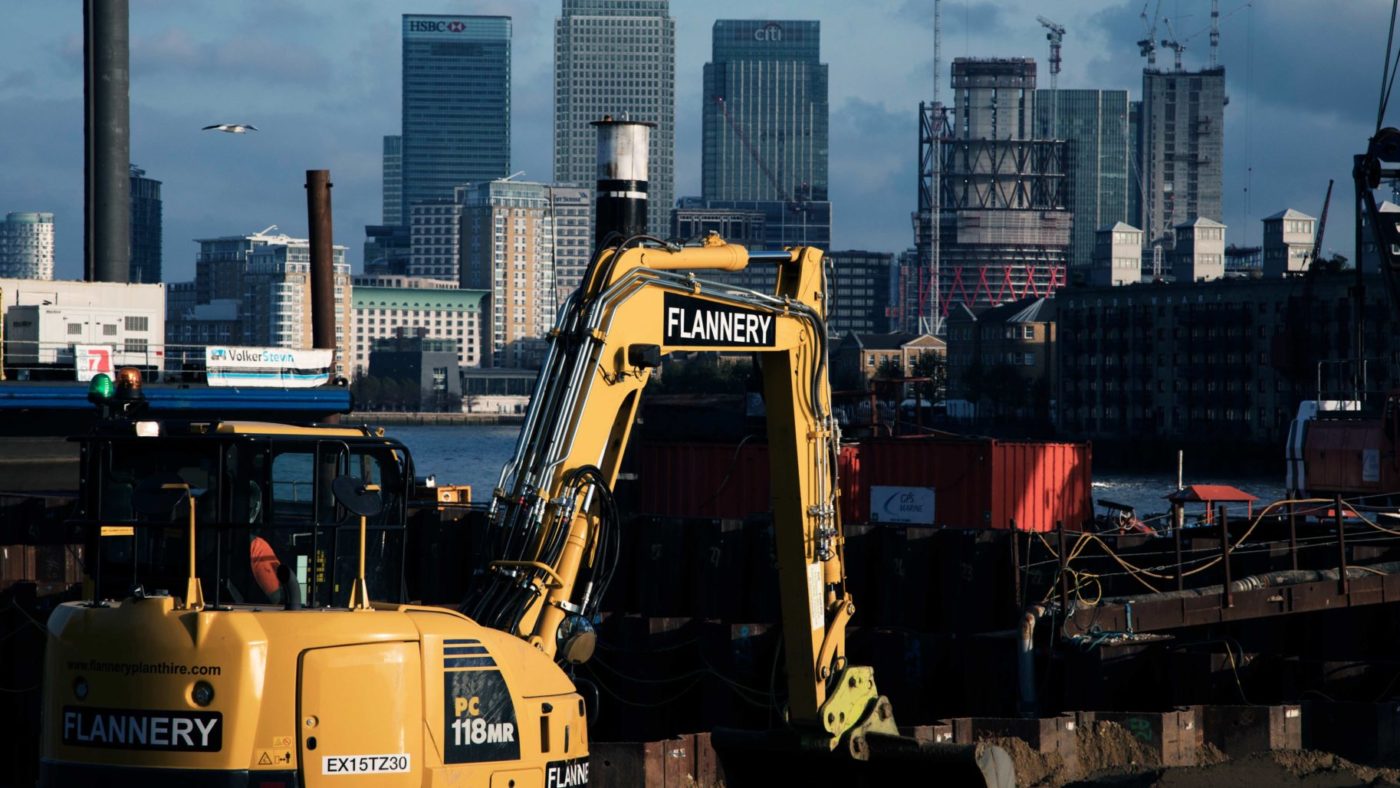The March 2020 Budget has now been all but forgotten. In that Budget, delivered in what now seems like a completely different era, Rishi Sunak announced a transformational set of capital expenditure plans, pledging a whopping £640bn of gross public capital investment in economic and social infrastructure across the UK by 2024-25.
But a lot has happened since then. After Harold Macmillan became Prime Minister in the 1960s, he was asked what would determine his government’s course, to which he reportedly replied “events, dear boy, events”. “Events”, of course, determine the course of every Government – and the pandemic faced by this Government is leading to an unprecedented set of economic challenges. Lockdown has led to GDP plunging by a quarter in March and April, and the UK’s debt to GDP ratio has skyrocketed to over 100%.
Despite these alarming numbers, the public will still be expecting the Government to deliver on its transformative infrastructure programme, which is rightly viewed as a core component of the levelling up agenda. The key issue Ministers will now have to contend with is the growing strain on the government’s balance sheet.
The Prime Minister gave a speech earlier this week setting out the Government’s grand vision for public investment into Britain’s infrastructure. But following the pandemic, a growing scarcity of public capital will inevitably lead to an increasing role for private capital to help deliver economic and social infrastructure into the coming decades. This, on the face of it, could lead to higher long-term financing costs – the cost of financing private capital is higher than public capital. But this will also bring opportunities to harness the benefits that can be associated with private capital. These include stable investment streams that are not subject to political cycles; the transfer of risk to the private sector; and the promotion of the right incentives that encourage good management of infrastructure assets. Private capital, when deployed in an effective and transparent regulatory framework, can lead to better outcomes for consumers.
Last year, the Government set up the Infrastructure Finance Review (IFR) to examine current tools for facilitating private investment into infrastructure. Publication of this review has been delayed along with the National Infrastructure Strategy and is unlikely to be released until Autumn this year.
The IFR will be an important step in giving investors and the private sector more clarity about the future opportunities to invest in infrastructure. London First and Arcadis’ Working Group examine the role of private capital in London’s infrastructure and met for the second time in June this year. It is clear that promoting more private capital will not be simple. Issues vary from sector to sector. Private financing of rail projects is difficult to achieve due to issues around the user-pay model: fares income is not usually sufficient to cover the cost of financing projects. In the utilities sector, regulatory issues during the recent price review period is causing concern for both investors and some ratings agencies – Moody’s outlook for the UK regulated water utility sector is negative. And in terms of investing in certain green technologies such as electric vehicle charging points, investment risk is deemed to be higher than risk associated with traditional public-private partnerships – and this hasn’t yet been successfully addressed by policymakers.
Then, of course, there is the thorny issue of replacing the politically toxic Private Finance Initiative (PFI), where some private investors were perceived to be making overly high returns. It should be noted that there are incidences of PFIs with good incentive structures that are continuing to go ahead – for example, the Silvertown Tunnel will be built under a PFI whereby financial risk for construction and initial maintenance will sit with the private sector. But only devolved bodies are able to procure them: they have been banned by central government.
A replacement public-private partnership model that promotes better social outcomes compared to conventional PFIs will need to emerge – and it will be important to ensure that returns to private investors are, at least in part, based on environmental, social and governance conditions being met. Public-private partnerships will also have to be more bespoke and cater to the differing needs of different projects. The Thames Tideway project is a good example of using an innovative Government guarantee that mitigated risk for low probability, high impact events, bringing down the cost of capital and, in turn, the cost to consumers; while ensuring that the private sector has financial incentives to deliver on time.
There is no shortage of private capital seeking long-term investment opportunities. So, at a time of strain for public sector capital budgets, it will be important to promote long-term patient capital into infrastructure, particularly from pension funds that are effectively “the people’s money”. There are still too many cases of policymakers in cities such as London having an ideological preference for public capital, leading them often to gravitate towards seeking government grants. This, among other factors (such as fragmented governance structures) can make London, in particular, a difficult place for private investment to deliver infrastructure.
Public bodies should re-double their efforts to work with the private sector in order to deliver their ambitions for a transformative programme of economic and social infrastructure. The economic fallout from the pandemic will make the Government’s infrastructure ambitions more difficult to achieve. But, with the right public policy outlook, private capital is available to step in and help deliver Britain’s infrastructure needs.
Click here to subscribe to our daily briefing – the best pieces from CapX and across the web.
CapX depends on the generosity of its readers. If you value what we do, please consider making a donation.


